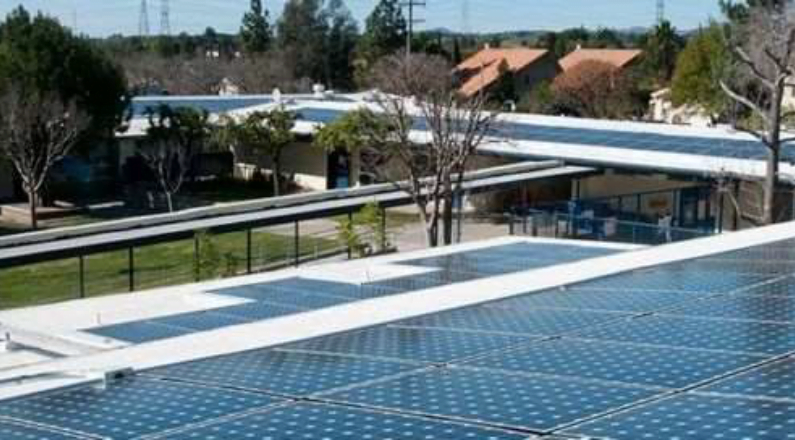The global transition to renewable energy sources is imperative in the fight against climate change. Among these, solar energy is a promising solution due to its abundance, sustainability, and potential to significantly reduce carbon dioxide (CO2) emissions. This blog will explore how solar energy contributes to CO2 reduction and fosters a greener, more sustainable future. Solar energy is derived from the sun’s rays, which can be converted into electricity or heat through various technologies. It is renewable, abundant, and can be harnessed in many forms, including solar photovoltaic (PV) systems and solar thermal energy. While manufacturing solar panels does involve some emissions, the overall lifecycle emissions are significantly lower compared to fossil fuels. Studies indicate that the CO2 emissions associated with solar power are less than 20 gCO2/kWh, based on the energy used in production and installation energy systems can be deployed on rooftops and brownfields, minimizing land use impacts. This strategic placement helps preserve natural habitats and biodiversity while reducing urban heat island effects associated with traditional energy plants. By investing in solar energy, countries can reduce their reliance on imported fossil fuels, enhancing energy security. Localized solar production fosters energy independence, allowing communities to generate clean energy without external dependencies.

Table of Contents:
| S.No | TOPICS |
| 1 | Introduction |
| 2 | Solar energy benefits the environment |
| 3 | Renewable energy and CO2 emissions |
| 4 | The Lifecycle Emissions of Solar Energy |
| 5 | Solar Energy and Carbon Footprint |
| 6 | Promoting a Greener Future with Solar Energy |
| 7 | Conclusion |
Introduction
The global shift towards renewable energy sources is critical in addressing climate change and environmental degradation. Among these renewable options, solar energy stands out for its potential to drastically reduce carbon dioxide (CO2) emissions and foster a more sustainable, greener future. By harnessing the power of the sun, solar energy systems provide a clean and efficient alternative to fossil fuels, mitigating the adverse effects of greenhouse gases on our planet. Over time, solar energy can lower electricity bills for homeowners and businesses, as solar systems harness free sunlight, reducing reliance on purchased electricity.
Solar energy benefits the environment
Solar energy is not only a renewable and sustainable source of power but also provides multiple environmental benefits. By transitioning to solar energy, we can significantly reduce our ecological footprint and foster a healthier planet with CO2 emissions reduction.

Reduction in Greenhouse Gas Emissions
One of the most significant environmental benefits of solar energy is its ability to reduce greenhouse gas emissions, particularly carbon dioxide (CO2). Unlike fossil fuels, which release CO2 and other harmful gases when burned, solar energy systems generate electricity without emitting pollutants. This reduction in CO2 emissions is crucial in mitigating climate change and its associated impacts, such as global warming, extreme weather events, and rising sea levels.
Decreased Air Pollution
Fossil fuel power plants emit various air pollutants, including sulphur dioxide (SO2), nitrogen oxides (NOx), and particulate matter, which can harm human health and the environment. These pollutants contribute to respiratory diseases, cardiovascular problems, and smog formation. Solar energy, on the other hand, produces electricity without releasing these harmful substances, leading to cleaner air and a reduction in pollution-related health issues.

Solar energy benefits the environment
Traditional power generation methods, such as coal, natural gas, and nuclear, require significant amounts of water for cooling and processing. This can strain local water resources, especially in arid regions or during droughts. Solar photovoltaic (PV) systems, however, use minimal water, primarily for cleaning panels. By reducing the demand for water-intensive power generation, solar energy helps conserve precious water resources and protects aquatic ecosystems.
Renewable energy and CO2 emissions
Solar energy systems produce electricity without emitting CO2 or other greenhouse gases.
Direct Emission Reduction: Traditional fossil fuel power plants release a substantial amount of CO2. In contrast, solar PV systems generate electricity without any direct emissions, making them a clean alternative.
Offsetting Fossil Fuel Use: Every kilowatt-hour (kWh) of solar-generated electricity offsets the need for electricity from fossil fuels, thereby reducing CO2 emissions. Over the lifespan of a solar panel, this can amount to a significant reduction in CO2 output.
Reducing Dependence on Non-Renewable Resources: By harnessing solar energy, we decrease our reliance on finite fossil fuels, promoting a shift towards sustainable energy sources and reducing overall CO2 emissions from extraction, transportation, and combustion of these fuels.
Land Use and Biodiversity: Solar energy projects can be designed to coexist with agricultural activities and preserve natural habitats. By using rooftops, parking lots, and other built environments, solar installations can minimize land use impacts.

The Lifecycle Emissions of Solar Energy
While solar panels have a carbon (CO2) footprint associated with their manufacturing, transportation, and installation, these emissions are minimal compared to the lifecycle emissions of fossil fuelbased energy. Advances in technology and manufacturing processes are continually reducing the carbon footprint of solar panels. Over their operational life (typically 25-30 years), the CO2 emissions avoided far outweigh the initial emissions from production.
Solar Energy and Carbon Footprint
Net Zero Energy Systems: By integrating solar panels with energy storage solutions and efficient energy management systems, households and businesses can achieve net-zero energy consumption. This means the total amount of energy used is equal to the amount of renewable energy generated, resulting in zero net CO2 emissions.
Grid Decarbonization: Large-scale solar farms contribute to the decarbonization of the electrical grid by supplying clean energy. As more solar energy is integrated into the grid, the overall carbon intensity of electricity decreases, leading to widespread CO2 emission reductions.
Promoting a Greener Future with Solar Energy
To maximize the benefits of solar energy, several strategies can be implemented:
Incentives and Policies: Governments can encourage the adoption of solar energy through subsidies, tax credits, and favorable policies. These incentives lower the cost of solar installations and accelerate the transition to renewable energy.
Research and Development: Continued investment in research and development can enhance the efficiency and affordability of solar technologies, making them more accessible to a broader population.
Public Awareness and Education: Educating the public about the benefits of solar panel and how to incorporate it into daily life can drive greater adoption and support for renewable energy initiatives.

Conclusion
Solar energy is a powerful tool in the fight against climate change, and partnering with the right solar panel company in India ensures a seamless transition to clean energy. By reducing CO2 emissions, conserving natural resources, and promoting sustainable development, solar energy plays a crucial role in creating a greener future. As technology advances and adoption increases, the positive impact of solar energy on the environment and society will continue to grow, paving the way for a cleaner, healthier planet. Embracing solar energy is not just an environmental imperative but also an opportunity to innovate and lead the world towards a sustainable future. Let’s harness the power of the sun and shine a light on a brighter, greener tomorrow. By incorporating solar energy into our lives, we can collectively make a significant impact on reducing CO2 emissions and promoting environmental sustainability. Greener energy aims to inspire individuals, businesses, and policymakers to support and invest in solar energy solutions for a better, greener future.


